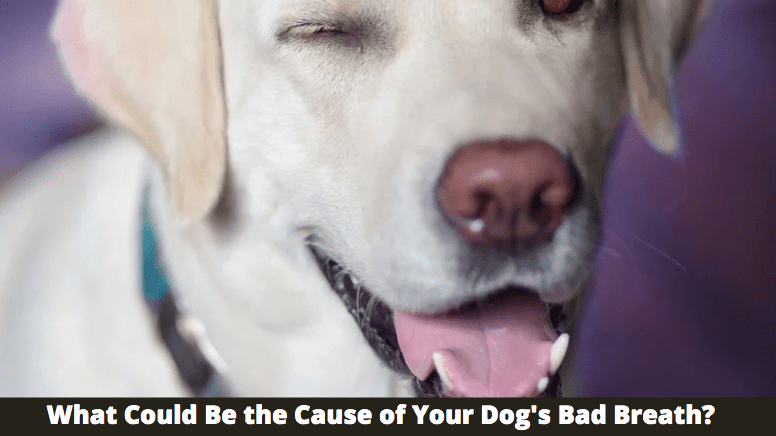What Could Be the Cause of Your Dog’s Bad Breath?
When it comes to dog bad breath, it is not one of those things that just comes with the territory of owning a dog.
Chronic halitosis, or bad breath, in dogs can be a sign of a variety of health problems, both small and significant.
Understanding the underlying reasons of foul breath can allow you to control the odour and enjoy those puppy kisses a little bit more. Learn more here.
More Than Just a Breath of Fresh Air
Because foul breath is typically caused by bacteria in the mouth, it is possible for any mammals to experience it from time to time.
Humans get out of bed in the morning, brush their teeth, drink some mouthwash, and, in the majority of cases, disguise their terrible breath for the remainder of the day. As a result, when your pup’s breath starts to make you feel dizzy, you may be unsure of what to do or how to proceed.
Dog foul breath that is frequent or excessive may be an indication of a health problem, therefore the first thing you should do if you notice really strong odours coming from your dog’s mouth is to take him to the veterinarian and have him have his teeth examined.
It is possible that they will discover significant tartar buildup, red and inflamed gums, or frequent drooling, which could be signs of a more serious dental illness such as gingivitis.
According to the American Kennel Club, a systemic ailment such as diabetes, liver disease, or kidney disease could be the cause of the problem.
While you’re in the vet’s office, you might want to bring up the subject of what kind of treats and food you’re giving your dog.
Despite the fact that some toys and treats highlight the benefits of dental health, not all breeds are created equal.
Certain types of snacks and chew toys may actually cause some breeds to have worse breath or excessive drooling as a result of their consumption.
As the American Society of Animal Control (ASPCA) notes, rawhide bones are an excellent example of a reward that many dog owners give their dogs without recognizing that they may be giving them the wrong size or feeding them too frequently.
Only your dog’s veterinarian genuinely understands what dental treats, chew toys, and food are the most beneficial for your dog’s oral health.
As your dog chews, there are a variety of dog meals available for everyday oral care that have been particularly developed to assist clean his teeth as he chews.
Occasionally, if the problem is caused by an oral disease, your veterinarian may recommend that you feed your pet therapeutic dog food. These types of foods may aid in the improvement of his general breath as well as his dental health.
Following a dental diagnosis, there is a period of adjustment.
Once your veterinarian has determined the source of your pet’s foul breath and has recommended medication, it is critical that you follow the directions on the box as well as the ASPCA’s recommendations.
Instead of approaching teeth-brushing time with frustration or making your dog apprehensive, make the most of the opportunity to bond with your dog during that time.
Never brush his teeth with toothpaste meant for humans.
There are a plethora of oral care kits available for dogs that have been approved by the manufacturer.
In the end, if your dog does not have dental problems but does experience occasional bouts of foul breath, you may want to pay more attention to what he is eating.
Your dog may be experiencing digestive distress as a result of certain foods or treats you give him, which would explain the foul odours coming from his mouth.
Also, keep in mind that dogs are curious creatures with weaker taste receptors than humans, so normally strong-smelling stuff, such as dead animals, rubbish, and even their own faeces, can entice them into trying something.
A thorough cleaning can be beneficial to your dog, just as it is to humans. A veterinarian can clean your dog’s teeth in these situations, but it will be necessary to put him under local anaesthesia first.
Consult with your veterinarian to determine if this type of deep cleaning might be beneficial to your pup’s oral health and to obtain their recommendations.
It is critical to provide your dog with proper care and grooming on the inside and outside.
It is possible to keep your pet feeling and smelling better by following a good meal plan and dental routine. This will allow you to enjoy more cuddles and hugs without feeling like you’re going to pass out from his terrible breath.
Fact-Finding:
Thanks for reading and have a great day! What Could Be the Cause of Your Dog’s Bad Breath?
Please post your thoughts in the comments section if you have any. Please feel free to share!

